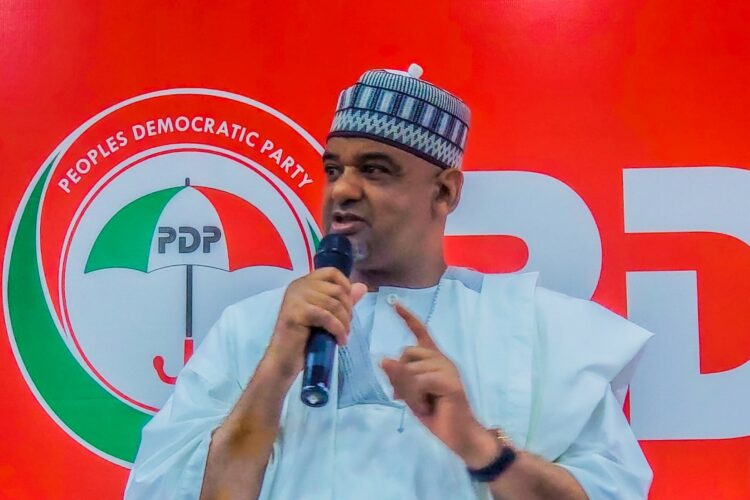
The African Union, finally launched the Africa Single Passport, a project aimed at facilitating free movement of people, goods and services among countries within the continent. For over two decades, there had been talks about allowing free flow of persons between countries. That dream was achieved with the launch of the Africa Single Passport project at the last summit of the African Union, (AU).
When the project becomes fully operational in 2018, as projected by its promoters, any African citizen visiting any of the 54 countries on the continent would not need a visa. To gain access into any country on the continent, all any African would need do is to be in possession of the AU single passport and present it at the border post.
Days after the project was formally launched, there were divergent views about the viability of the single passport programme. For some, it is a welcome development, as it would help boost the economic potentials of the individual countries, which is one of the major reasons for the idea. However, those who do not see a bright future in the project believe that Africa’s peculiarities would not make it work, as there are inter-countries negative rivalry, insecurity and suspicion that would make the project fail.
For some countries on the continent, this new policy aligns with their programme of free entry, since they have been operating the policy before now. Ghana is the latest country on the continent that allows for free movement into its country. But the number of countries that allow free movement into its borders is minimal, compared to those who do not at present.
Before the passport was launched at the last summit, did African Union carry along member countries; and if it did, did the member countries take efforts to popularize the project among its citizens.
Former Director General of the Nigeria Institute of International Affairs, Professor Bola Akinteriwa said whether there was adequate consultation before the launch could be looked at from the way the AU functions. He, however, noted that even if all the 54 countries in Africa had been carried along, there is nothing to suggest that all the 54 countries would readily go along with it at the time it was launched.
“Each AU summit is usually structured into three. The first level of structure is that of the permanent representatives. Every member states of the African Union, as a mission accredited with the African Union has a permanent representative, so the first two-three days, the permanent representatives review what the AU had agreed upon in the previous meeting to come out with an agenda on the basis of what was reached in the previous summit.
“Once they do that, the second level is the Council of Ministers, who for two to three days again look at the outcome of the meetings of the permanent representatives. They then reconcile and update it to come up with a revised agenda. The following two or three days, are the days of the proper summit, which is a gathering of the AU head of states and governors. It was on the 17th of July that the summit proper started and the passport was introduced to every one.”
Akinterinwa argued that if the passport was introduced to the General Assembly on the 17th, it means it has a genesis. “It was at that mid-term summit that it was decided that all negotiations and preparations for an African passport must be completed for the purpose of the main summit.”
The former NIIA boss said that at the level of AU, yes, there was wide consultation, as each of the permanent representatives was expected to report back home to their principals, the presidents.
“When the passport was thrown open, you must know that they did not go to the printing press and just come out with a passport.”There are 54 countries on the continent and only 13 at present use biometric passport, which would be the technology backing the new single passport for security reasons.
And it has been observed that many African countries lack the infrastructure to roll out the initiative, reason they have not deployed biometric in their passport process. To adopt the biometric system requires a huge fund, which many of these countries also cannot afford, another reason biometric passport is not in use in these countries.
The financial challenge of funding the project and the bottlenecks that may come with producing a single passport, may threatened the successful take off of the project.
Akinterinwa agreed that the fund to finance the project may be a huge challenge in some countries, but the AU decided to launch it because they must start from somewhere, so that by 2018, individual citizens on the continent is then issued the passport.
“What they are doing now is issuance of diplomatic passport for government officials and some big business men. And by 2020, all Africans would be in possession of an African passport. And they expected the member countries to arrange to issue to their citizens.” Akinterinwa said.With the infrastructure deficit and funding challenge, some have argued that an agreement of visa-free travel among countries would have been a better option, rather than the single passport.
Akinterinwa said that though there are many arguments for and against, it however depends on what to be considered. “The issue is that a passport serves the purpose of identification, because we know African Americans who carry the American passport but how do you know they are Africans, it is when they say so. The people who say why not an agreement, yes, you can have an agreement but are you going to be identified as an African, certainly no.
“You will be identified as a Nigerian, but you have the privilege of shuttling among countries without a passport. Having an agreement is good, but quite different from having an AU passport, where it is stated that you are a citizen of a member country and you would not queue up for visa to enter the country. Those that do not have the means now, let us agree that within 30 days, a citizen could move, as long as such a person could identify himself as a citizen of a member state. And it is what the Economic Community of West Africa State (ECOWAS) passport provides for, it is even 90 days with the ECOWAS, but when you want to stay beyond those days, there must be proper documentation about the person. So, that should be an addition to the AU passport.”
The professor also noted that though there is infrastructure deficit, it does not mean all the countries must attain the objectives at the same time, which the AU recognizes. According to him, it is why the AU made provision for a gradual implementation of the project.
“Between now and 2018, the first leg would have been covered. By 2020, member states would have succeeded in issuing the passport to their citizens. I can assure you that if by 2020, the problem has not been fully solved; they will extend it. So, there is no big deal there and what the AU is doing is that consistent efforts are being made to ensure the integration of black people in Africa.”
The professor, however, urged African leaders to learn from European Union (EU) as it relates to brexit. “Why did the British withdraw from the EU? Is it simply because of the complaint about migrants and terrorism?”
A senior lecturer in the Department of Political Science, University of Lagos, Dr Ishola Akinyemi said the reality is that the awareness and consciousness of the existence of such project is very shallow. Take for instance the ECOWAS passport, which many are not aware of and the rights it confers on them.
“When people travel from Nigeria to Benin Republic, they are harassed. So having a continental one, maybe the dream of Nkurumah is coming to reality. But we are leaving what we ought to do to copy what other regional blocs around the world are doing and they have gone far beyond the level in which we are now in Africa. So we are embarking on what we do not have capacity for, we still have conflicts all over Africa, including neocolonial identities. In terms of international politics, we are doing what others are doing, we are regionalizing.”
He argued that AU leaders should have made efforts to promote the philosophy that Africans are one first.“I do not see economic advantage in the project, rather it would be easier to steal money away from one country to another. I am very skeptical about the project,” Akinyemi said.
Dr Babatunde Wasiu Adeoye, a senior lecturer in the Department of Economics at the University of Lagos, said that having a single passport for citizens on the continent cannot propel growth directly as claimed by AU.
“What I see the single passport doing is free movement of goods and services within the continent, removing most of the restriction placed on people when they need to move around. But in terms of driving growth and development, there are other fundamentals that must be put in place apart from allowing free flow of goods and services, as the continent is an import dependent one; not producing locally.
He maintained that the continent needs more than just free trade policies but also fiscal and monetary polices, as trade policies alone cannot propel growth. He further said that free trade policies must be in line with other macro-economic policies, like the issue of budget and interest rate. “Our interest rate must be positive, the nominal interest rate must be higher than the rate of inflation. Each economy has a lot to do in order to achieve that kind of growth but that could be a good starting point, when there is free flow of goods and services, it would encourage all other things, provided all economic fundamentals are put in place,” Adeoye said.





